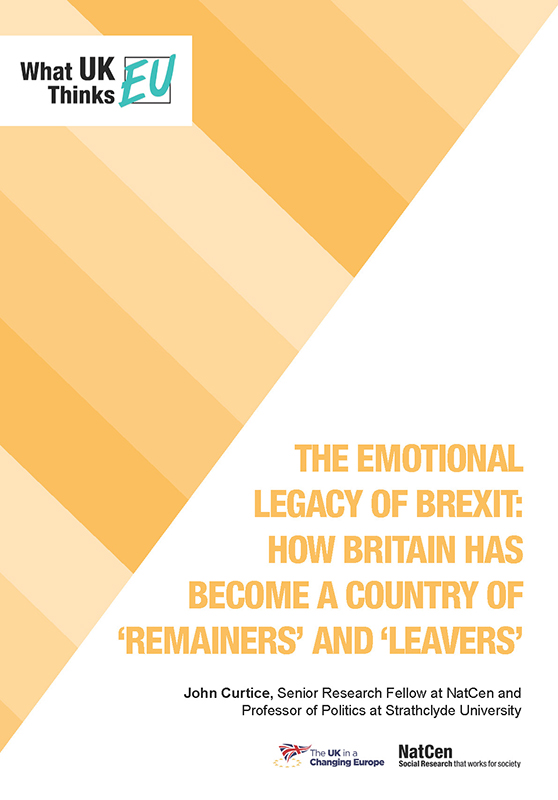 It has long been evident that these days relatively few voters feel strongly attached to a political party. But it has been suggested that, in the wake of the EU referendum, many people regard themselves as either a strong ‘Remainer’ or a strong ‘Leaver’. Using data from the most recent wave of questions about Brexit asked on the NatCen mixed mode random probability panel, we compare the prevalence and strength of Brexit identity with that of party identity, and assess the extent to which those with a strong Brexit identity have distinctive views about the Brexit process.
It has long been evident that these days relatively few voters feel strongly attached to a political party. But it has been suggested that, in the wake of the EU referendum, many people regard themselves as either a strong ‘Remainer’ or a strong ‘Leaver’. Using data from the most recent wave of questions about Brexit asked on the NatCen mixed mode random probability panel, we compare the prevalence and strength of Brexit identity with that of party identity, and assess the extent to which those with a strong Brexit identity have distinctive views about the Brexit process.
Read the full report: The Emotional Legacy Of Brexit: How Britain Has Become A Country Of ‘Remainers’ And ‘Leavers’.
Key findings
Far more people feel a strong attachment to Remain or Leave that consider themselves to be a
supporter of a political party.
Very strong Remainers are particularly likely to be critical of how the UK government has been
handling the Brexit negotiations while very strong Leavers are especially critical of the EU.
Nearly all very strong Remainers are pessimistic about the economic consequences of Brexit
while most very strong Leavers are optimistic.
Read the full report:
The Emotional Legacy Of Brexit: How Britain Has Become A Country Of ‘Remainers’ And ‘Leavers’.




